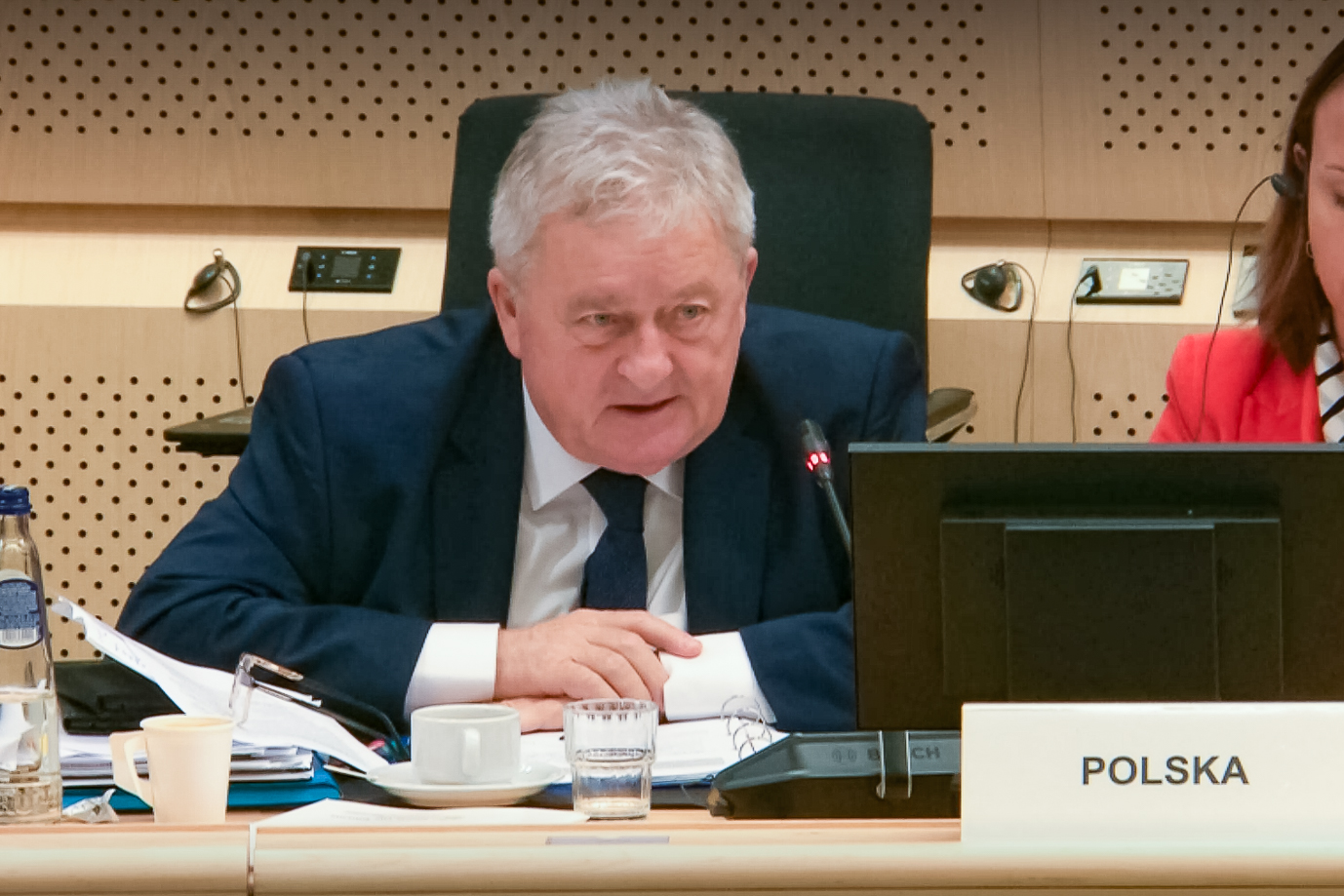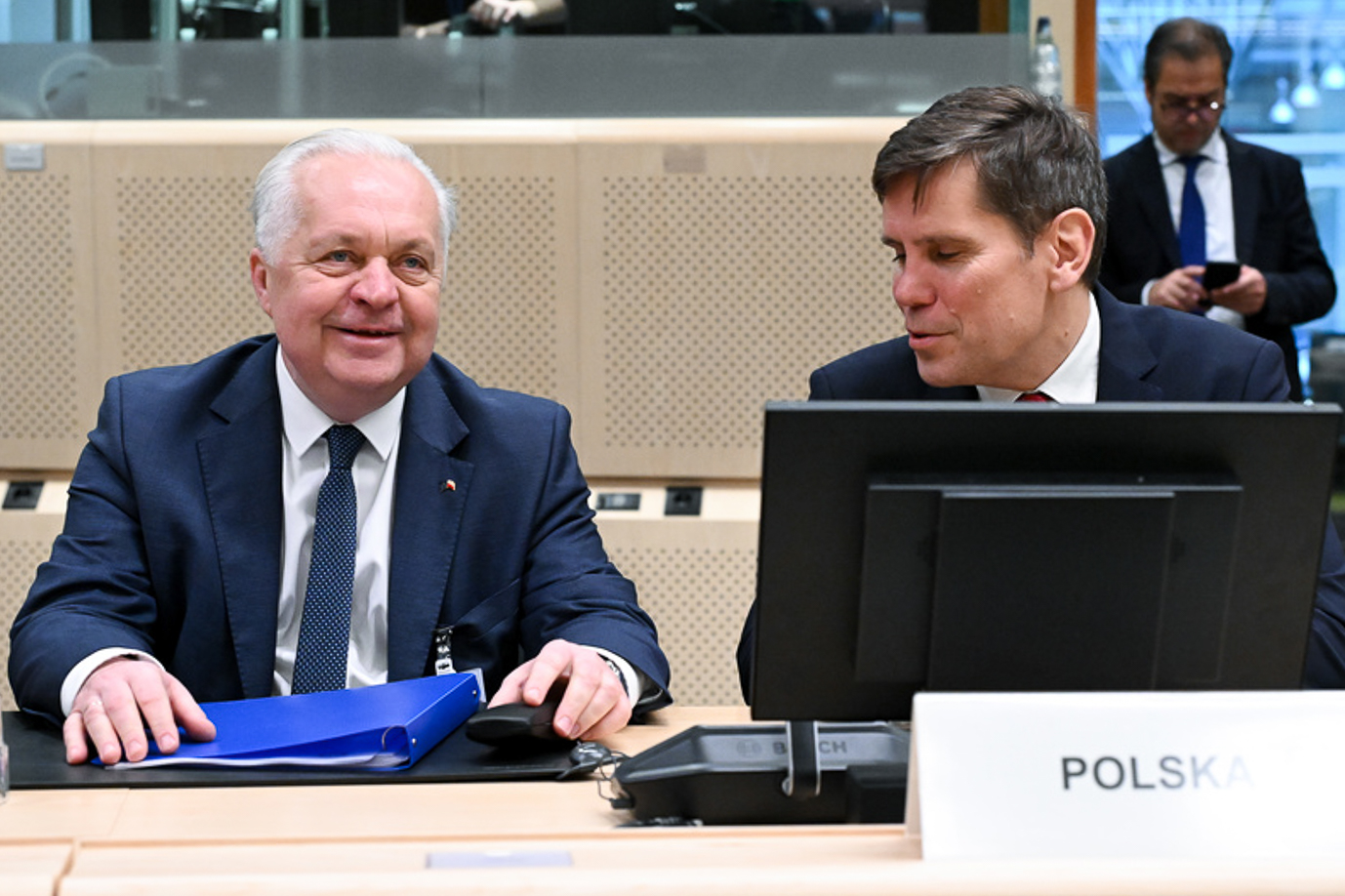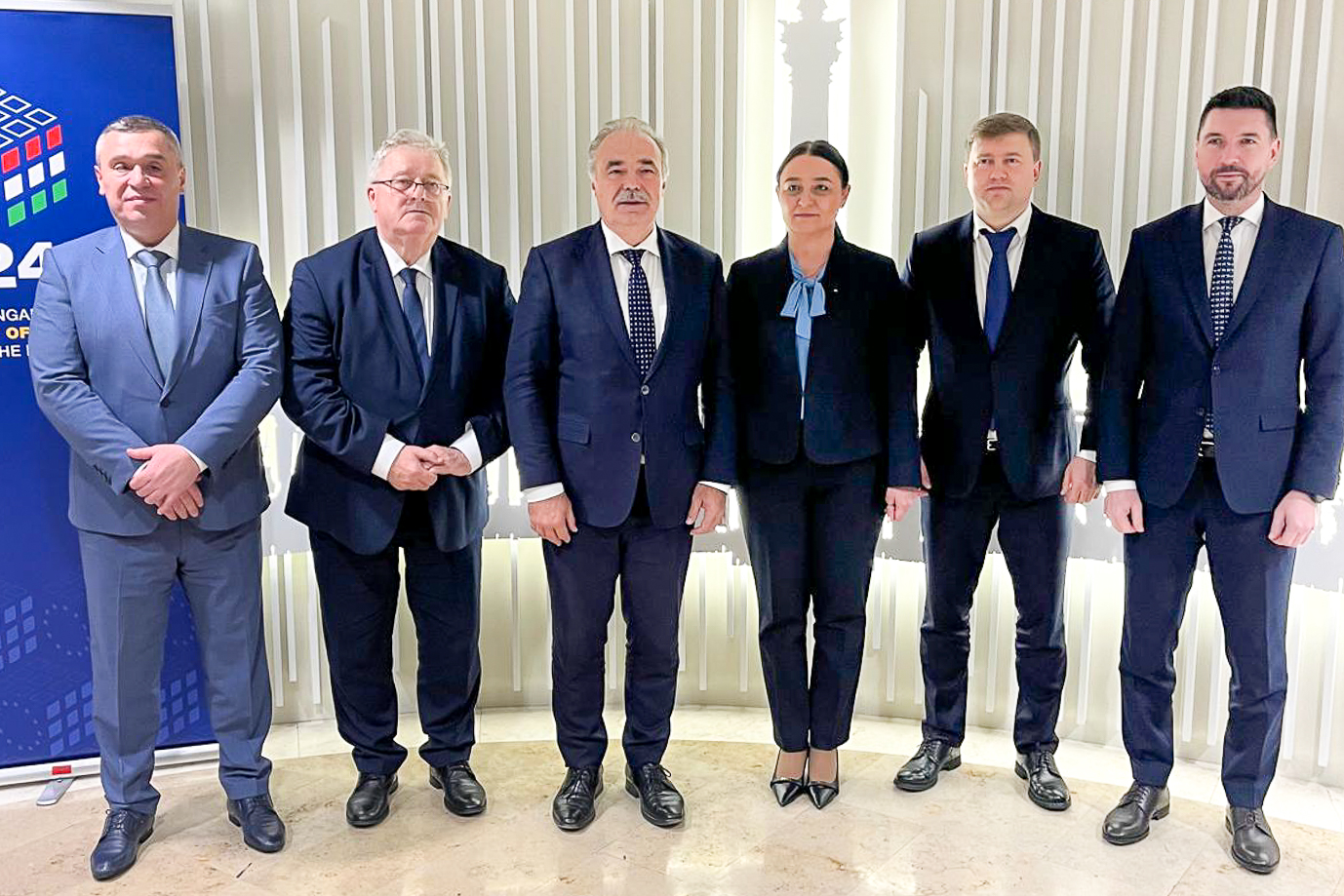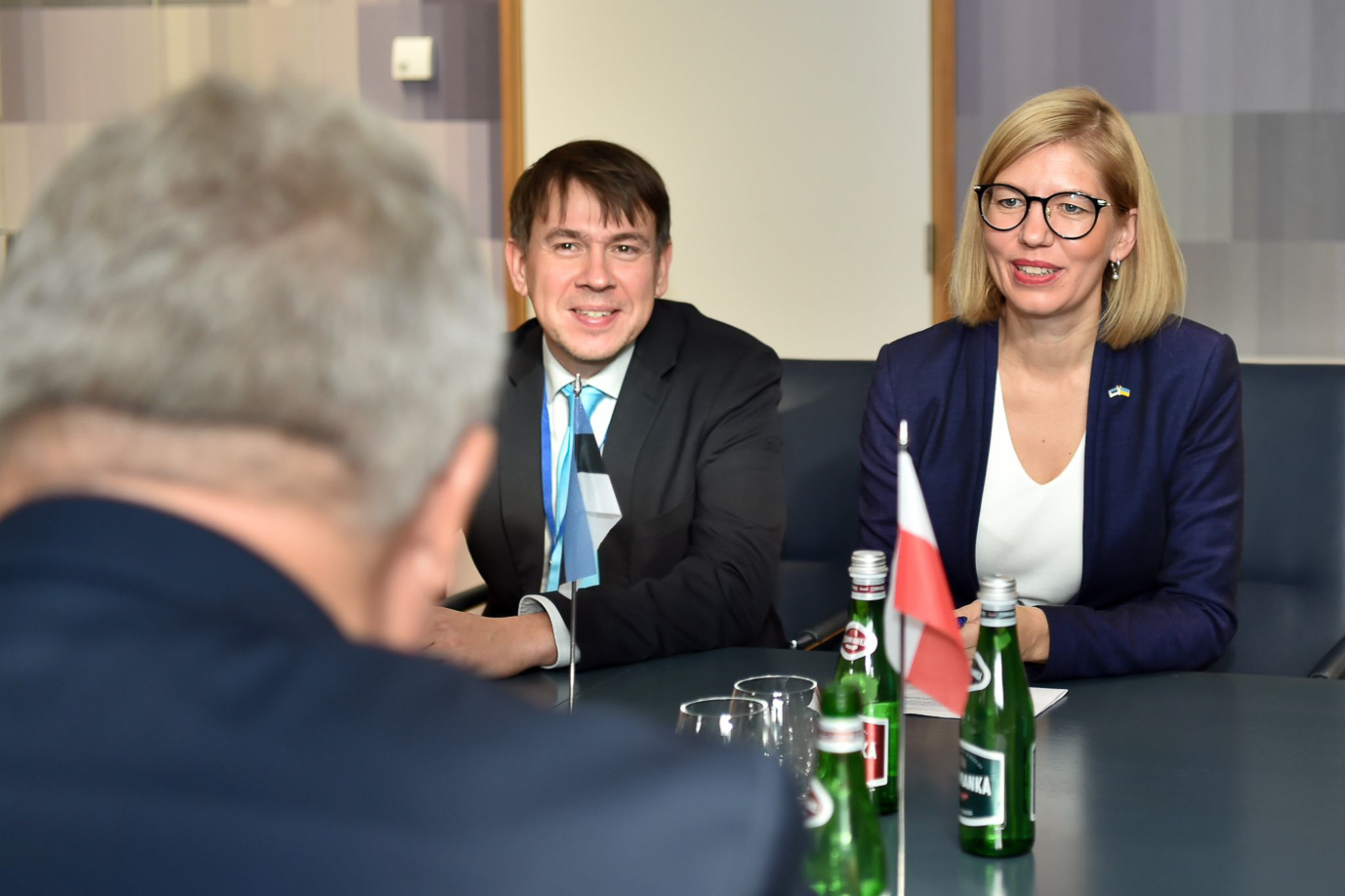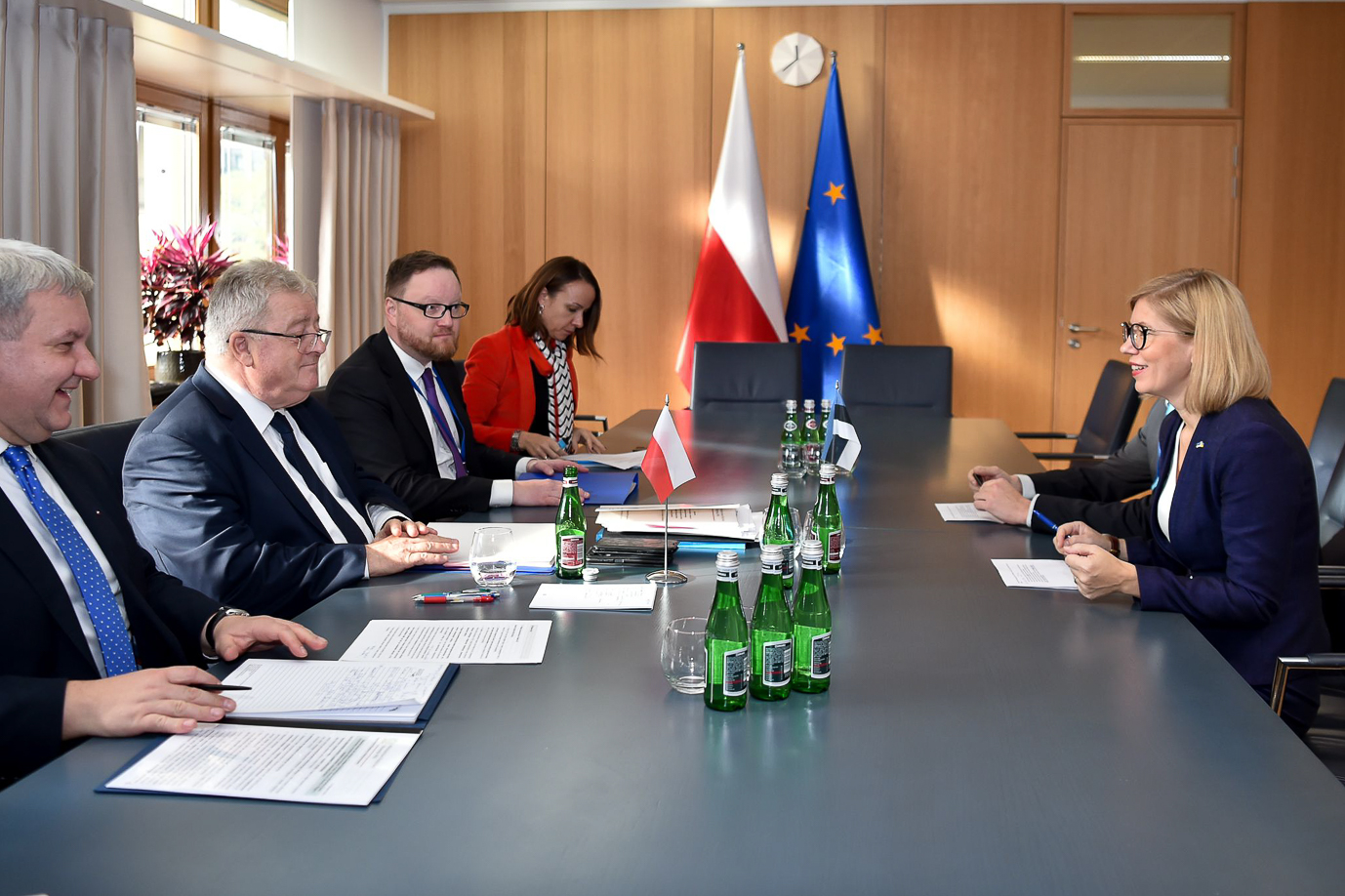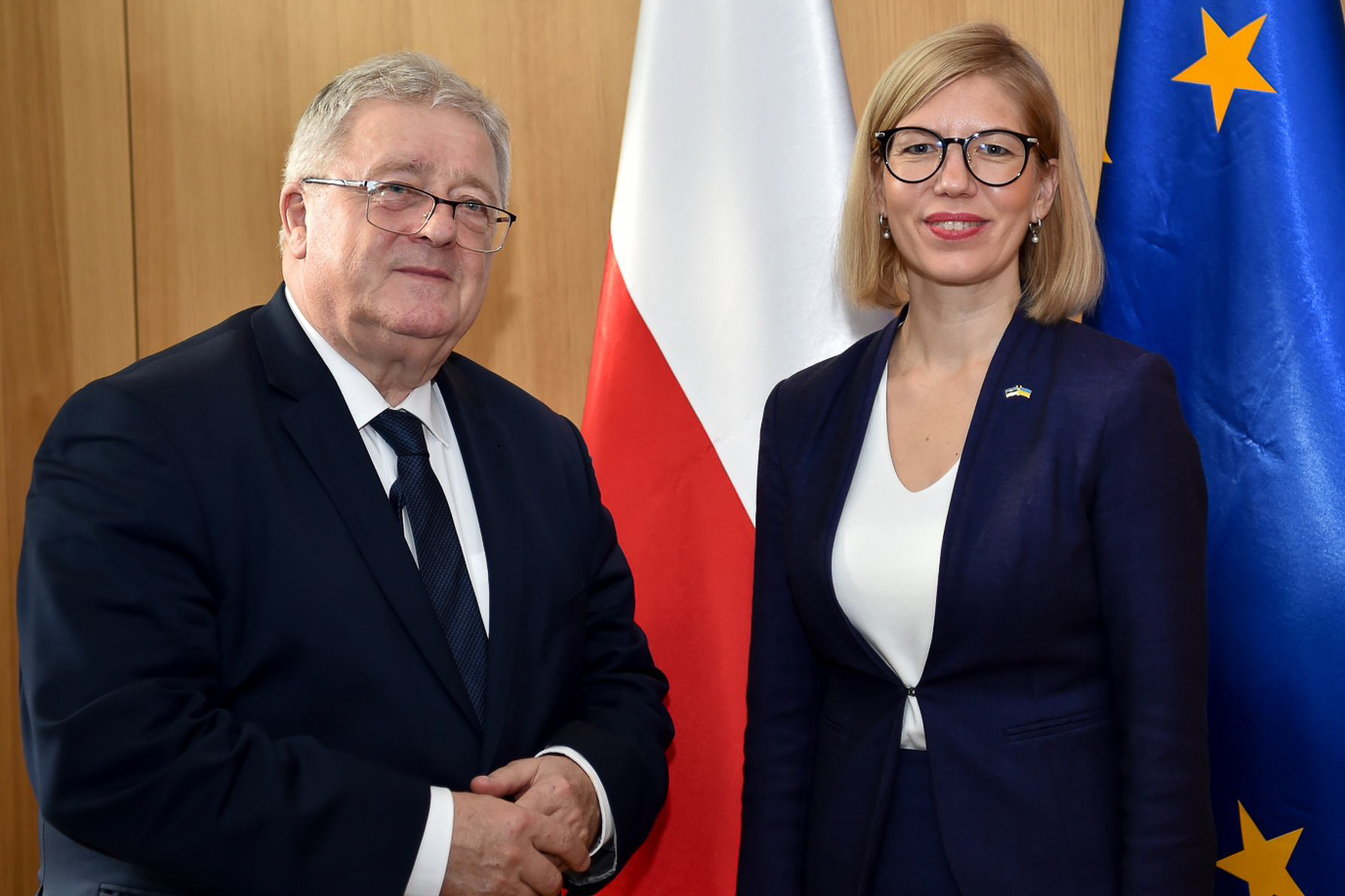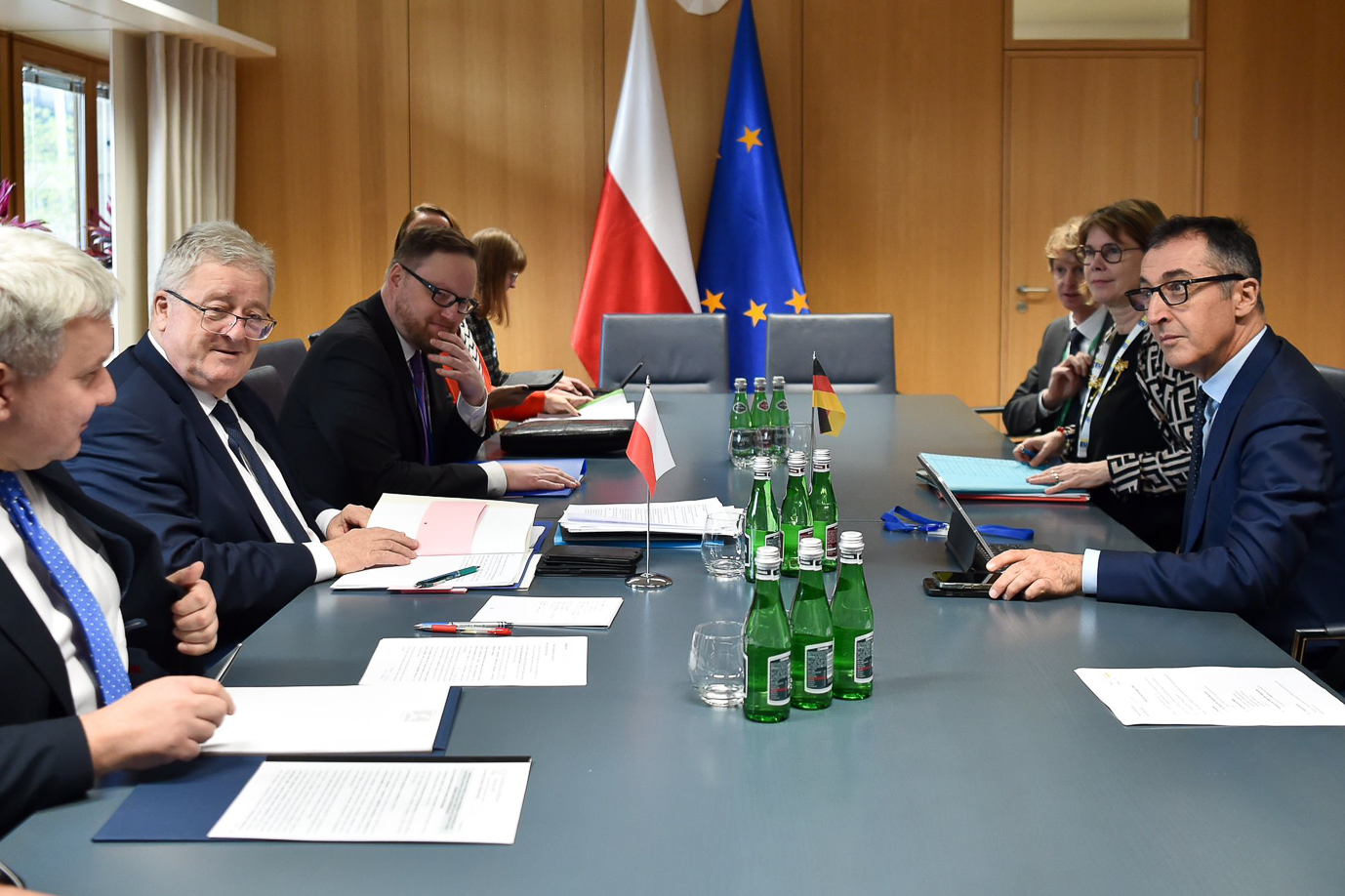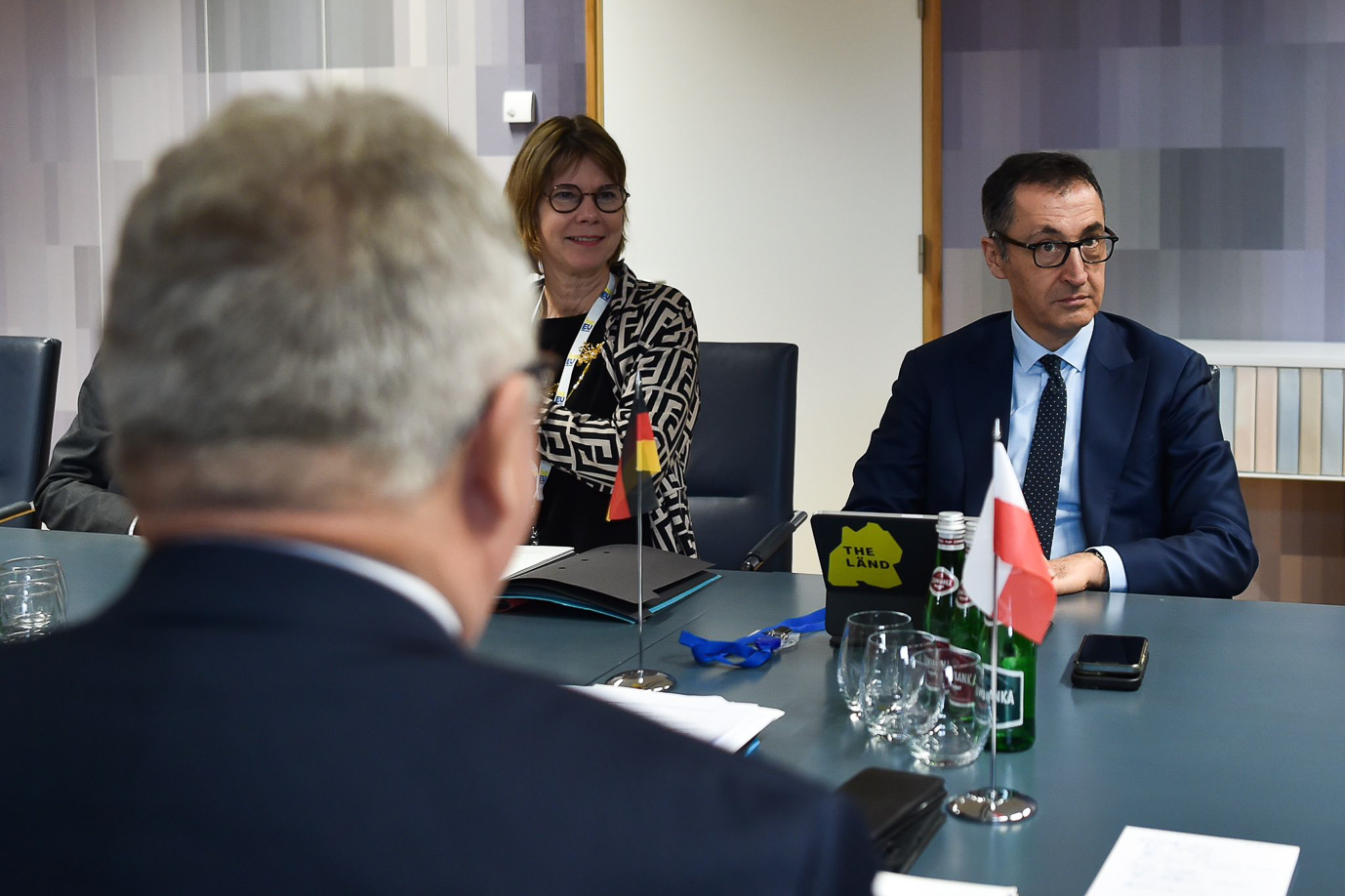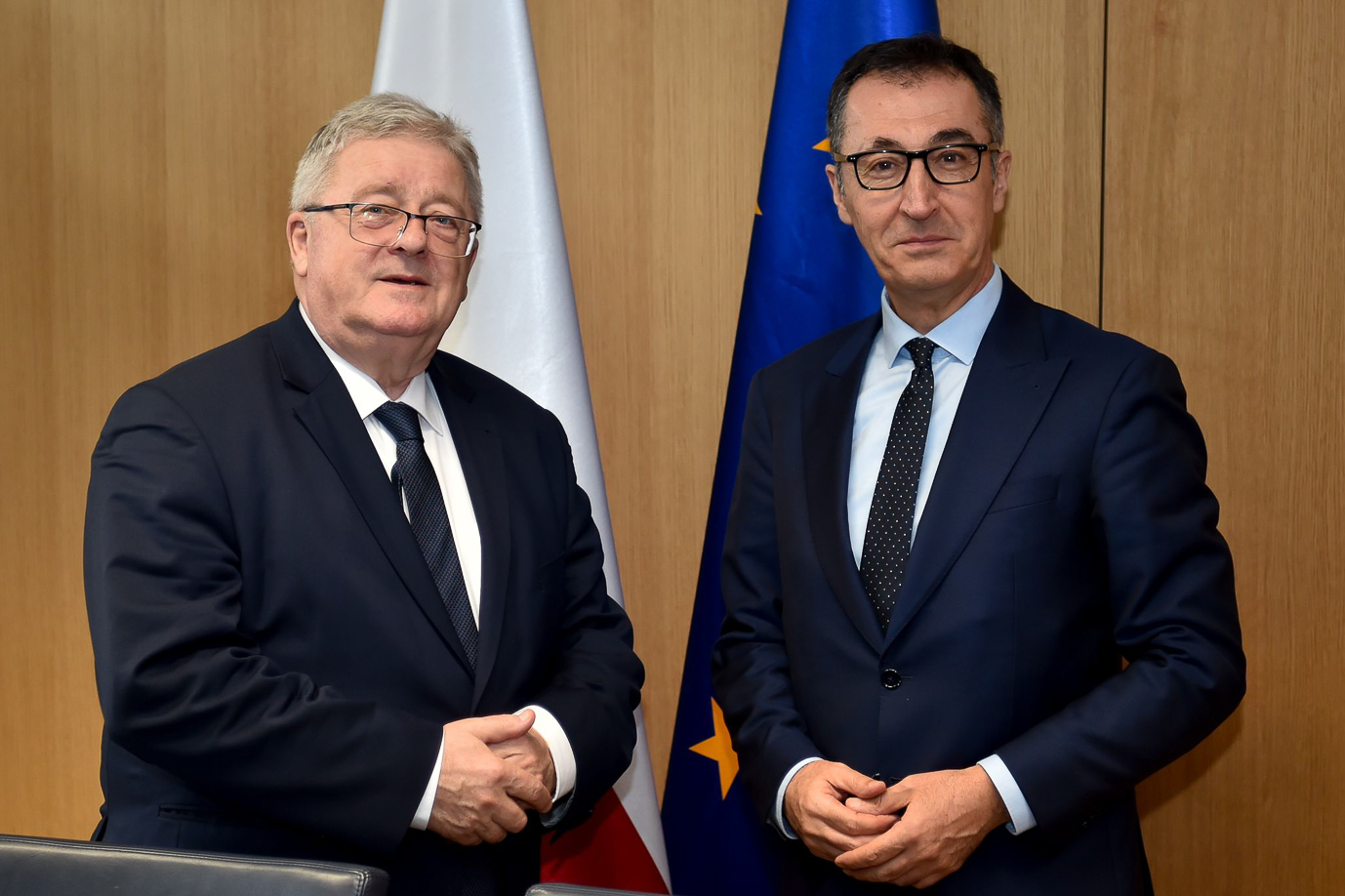AGRIFISH in Brussels – important issues for agriculture and fisheries
18.11.2024
The main topics discussed at the EU Agriculture and Fisheries Council (AGRIFISH) meeting in Brussels on 18 November 2024 included: the current situation in agricultural markets and fishing opportunities for 2025 in the Atlantic Ocean and the North Sea and – in relation to certain deep-sea fish stocks – for 2025 and 2026. The Polish delegation was chaired by the Minister of Agriculture and Rural Development Czesław Siekierski. The meeting was also attended by the Secretary of State Jacek Czerniak.

Agriculture
Situation in agricultural markets
The Ministers discussed the current situation in agricultural markets, particularly in connection with Russia’s invasion of Ukraine. In this context, the Presidency presented the information about the results of sectoral debates it had organised with respect to the current challenges and prospects facing the agricultural sectors.
The initial part of the meeting was attended by the Minister of Agrarian Policy and Food of Ukraine Vitaliy Koval, who presented the information regarding the impact of the war on the situation of the agricultural sector in Ukraine and appealed for further support of export.
Position of Poland
In the discussion, the Minister of Agriculture and Rural Development Czesław Siekierski referred to three sectors where the challenges were the greatest: pork, cereals and sugar. The Minister pointed out that the greatest challenge for the pork sector was the absence of effective mechanisms to mitigate the low profitability of production.
He indicated the income instability with the high production costs and increasing requirements for farms, which lead to the liquidation of pig herds. Minister Siekierski stressed that the situation was also aggravated by ASF, therefore, it would be necessary to improve the effectiveness of measures with regard to combating that disease. The Minister added that the problems of farmers were Intensified by their weak position in the food chain.
The Head of the Ministry of Agriculture, referring to the cereal sector, emphasised that it was dominated by several players, including Russia, which could destabilise the global cereal market. He stressed that in the case of Poland, the influx of cheap cereals from Ukraine was also a problem.
The Minister highlighted that the EU market should be protected from the influx of cereals from countries where the EU production standards concerning climate protection, environmental protection, safety and food quality were not observed.
– Measures should be taken to improve transport within the European Union and reduce its costs, so as to encourage EU deficit countries to source more cereals in the internal market – added the Polish Minister of Agriculture.
Minister Siekierski pointed out that despite the ongoing war, Ukraine was developing the sugar sector. He stated that in view of the high transport costs, Ukrainian sugar could be primarily delivered to the nearest market, including the Polish market. The Minister stressed that in the absence of a level playing field, this might lead to the collapse of the sugar sector in Poland and further in the European Union.
The Head of the Ministry of Agriculture also indicated the huge challenges facing EU agriculture, which would result from the potential signing of the agreement with Mercosur.
The Minister emphasised that the negotiations were still ongoing, but the existing results of the talks in the area of agriculture raised serious concerns among agricultural communities. He added that concerns included, inter alia, the effects on the beef and poultry sectors and difficulties in competing with agricultural production from Mercosur countries, where different requirements and standards of agricultural production were applicable, and thus the production costs were lower.
EU protein strategy
At the initiative of the German and Danish delegations, the topic on the need for the EC to submit an EU protein strategy was discussed.
Position of Poland
Minister Siekierski agreed with the proposal of the German and Danish delegations to submit an EU protein strategy. He stressed that the deficit of plant protein production in the European Union was a difficult and strategic problem that needed to be solved. He added that the availability of plant protein was essential to ensuring food security.
The head of the Polish delegation stressed that increasing the cultivation area of soybean in the EU, as well as of other protein crops, would allow to increase independence from external supplies and diversify sources of supply.
– From the Polish point of view, plant protein is particularly important for the feed industry. Poland is a leader in the production of poultry for which plant protein is essential. Meanwhile, the vast majority of protein for feed purposes comes from the import, from outside the European Union – said the Polish Minister of Agriculture.
The Head of the Polish Ministry of Agriculture added that we wanted to increase the production of protein within our own capabilities. He considered it important to take comprehensive action at Union level that would introduce effective measures to increase protein independence.
Fishery
Fishing opportunities
During the meeting, the Ministers of Fisheries exchanged opinions on the European Commission’s proposal to determine fishing opportunities for 2025.
As regards the new cod quota, the Ministers committed to seeking a solution allowing to establish the allocation key for the Member States interested in that species and expressed their hope that work would be completed before the AGRIFISH meeting in December.
The Ministers of Fisheries also referred to the need to revise the eel management plan and to introduce appropriate conservation measures for all life stages of eel.
Meetings on the sidelines of the Council meeting
On the sidelines of the AGRIFISH Council meeting, Minister Czesław Siekierski attended the meeting of the EPP Ministers of Agriculture, a bilateral meeting with the German Minister of Food and Agriculture Cem Özdemir and the Estonian Minister of Regional Affairs and Agriculture Piret Hartman, an informal lunch of the Ministers of Agriculture of Bulgaria, Poland, Romania, Slovakia and Hungary with the participation of the Ukrainian Minister of Agriculture.

